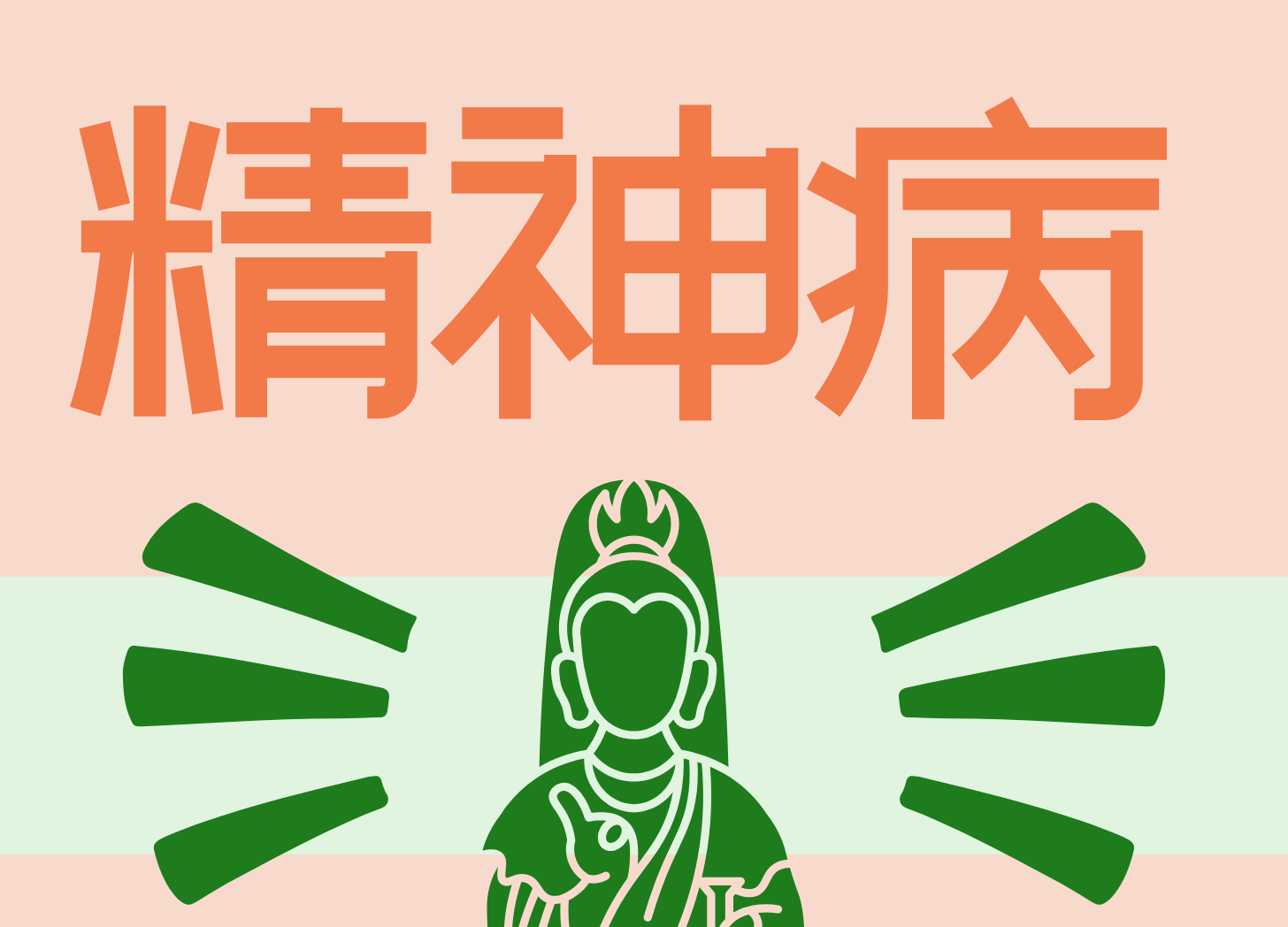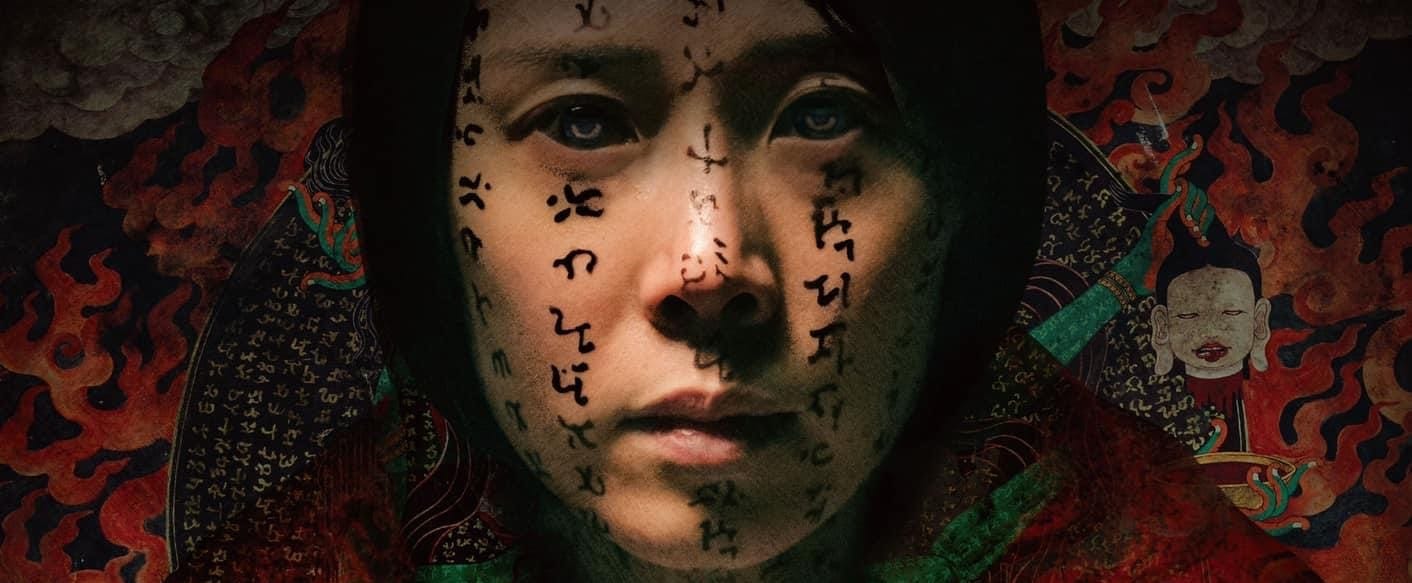Possessed by Demons or Collective Mental Illness? 👻
The True Story behind the Movie "Incantation"
Word of the Week: 精神病 (jīng shén bìng) - Mental Illness
"Incantation" (咒 - Zhòu) was one of the highest-rated Chinese-speaking movies of 2022, sending chills down audiences' spines and filling theaters with screams. But as terrifying as the film is, the true story it's based on is even more disturbing.
Let's dive into the bizarre and unsettling events that took place in Taiwan 20 years ago!
据了解,吴 (Wú) 姓一家居住在高雄鼓山区 (Gǔshān qū),父母以粗活为生,四名二十多岁的子女,分别从事护士、餐饮及印刷工作。2005年2月,年纪最小的妹妹突然“起乩”,声称被“三太子”附身,并向家人表示在台北的大姐有生命危险,一定要回高雄,母亲立即带长女回老家,但她一回家睡觉就梦见被性侵,吓得只敢在白天睡觉。
粗活 (cūhuó): menial work
起乩 (qǐ jī): spirit possession
三太子 (sān tàizǐ): Third Prince (Chinese God)
附身 (fù shēn): possess
性侵 (xìng qīn): sexual assault
According to reports, the Wu family lived in the Gushan District of Kaohsiung. The parents would make a living doing menial jobs, and their four children, all in their twenties, worked as a nurse, in the food and beverage industry, and in printing. In February 2005, the youngest daughter suddenly began "spirit writing," claiming to be possessed by "Third Prince" and informed the family that their eldest sister in Taipei was in danger and must return to Kaohsiung. The mother immediately brought the eldest daughter home, but as soon as she fell asleep, she dreamt of being sexually assaulted, and was so frightened that she only dared to sleep during the day.
到三月初,有日长女接完一通电话后就“起乩”,自称是“观世音菩萨”要为人消灾解难,接着更开始殴打自己,家人陪她到五指山禅修,又到神坛收惊但都没用,随后其他家人也一个接一个跟着“起乩”,各自被“玉皇大帝”、“王母娘娘”及“七仙女”等附身,一家六口不停自相残杀,包括拿神主牌及拐杖互殴、以点燃的香烧灼对方、互撒盐米,甚至互相喂屎、撒尿来驱魔。
长女 (cháng nǚ): the eldest daughter
观世音菩萨 (Guānshìyīn Púsà): Guanyin Bodhisattva (Chinese Goddess)
解难 (jiě nán): solve problems
殴打 (ōu dǎ): beat up
禅修 (chán xiū): meditation
玉皇大帝 (Yùhuáng Dàdì): Jade Emperor (Chinese God)
王母娘娘 (Wángmǔ Niángniang): Queen Mother of the West (Chinese Goddess)
七仙女 (Qī Xiānnǚ): Seven Fairies (Chinese Goddesses)
残杀 (cán shā): massacre;
神主牌 (shén zhǔ pái): ancestral tablet
拐杖 (guǎi zhàng): crutch
互殴 (hù ōu): fight each other
烧灼 (shāo zhuó): burn
驱魔 (qū mó): exorcise demons
By early March, after receiving a phone call, the eldest daughter also began "spirit writing," claiming to be "Guanyin Bodhisattva" to help people avert disasters and solve problems. She then started to hit herself. The family accompanied her to Wuzhishan for meditation and went to the shrine to calm her, but for nothing. Soon, other family members also started "spirit writing" one after another, each possessed by "Jade Emperor," "Queen Mother of the West," and "Seven Fairies." The six family members continuously fought each other, using ancestral tablets and crutches to beat each other, burning with incense, throwing salt and rice, and even feeding each other feces and urine to exorcise demons.
恍然大悟 - They Suddenly Saw the Light
这样子持续了一个月,六人拒绝进食,连日来只喝符水维生,住在楼下的亲戚被他们的举动吓得不敢回家,完全没有人帮助他们。到了四月,长女断气死亡,其他家人还以为死的是附在长女身上的妖魔,隔日大家都停止“起乩”,才将长女送到医院急救。五名家人一直认为长女没有死,妈妈也声称“被长女的鬼魂附身”,直到真正确认长女的死讯才恍然大悟搞出人命。
进食 (jìn shí): eat
符水 (fú shuǐ): talisman water
举动 (jǔ dòng): action
妖魔 (yāo mó): demon
恍然大悟 (huǎng rán dà wù): suddenly see the light; suddenly realize
This continued for a month. The six refused to eat and only drank talisman water to survive. Relatives living downstairs were so frightened by their actions that they did not dare to return home, and no one helped them. In April, the eldest daughter died, but the family thought it was the demon possessing her that had died. The next day, everyone stopped "spirit writing" and took the eldest daughter to the hospital for emergency treatment. The five remaining family members believed the eldest daughter was not dead, with the mother claiming to be possessed by the eldest daughter’s ghost. It was not until they confirmed her death that they realized they had caused her death.
这个比电影更怪力乱神的故事,以科学角度来看是一桩精神病伦常惨案,当地精神科医生认为,姓吴一家疑似集体患上精神妄想症,他们长年累月迷信鬼神,就算当中有人当护士却讳疾忌医,宁愿相信自己被妖魔鬼怪附身,最终导致悲剧发生。
精神病 (jīng shén bìng): mental illness
伦常惨案 (lúncháng cǎn'àn): familicide, murder of family members
精神妄想症 (jīng shén wàng xiǎng zhèng): delusional disorder
长年累月 (cháng nián lěi yuè): over the years
讳疾忌医 (huì jí jì yī): avoid medical treatment despite illness
宁愿 (nìng yuàn): would rather
This story, stranger than fiction, is viewed from a scientific perspective as a tragic case of collective mental illness. Local psychiatrists believe the Wu family suffered from delusional disorder. Despite having a nurse in the family, they avoided medical treatment due to their deep-seated superstitions about spirits and demons, ultimately leading to this tragedy.
Isn't it interesting that the Chinese word for mental illness (精神病) contains the character for “God” or “Spirit” (神)? Coincidence?
Antoine & Dorota







